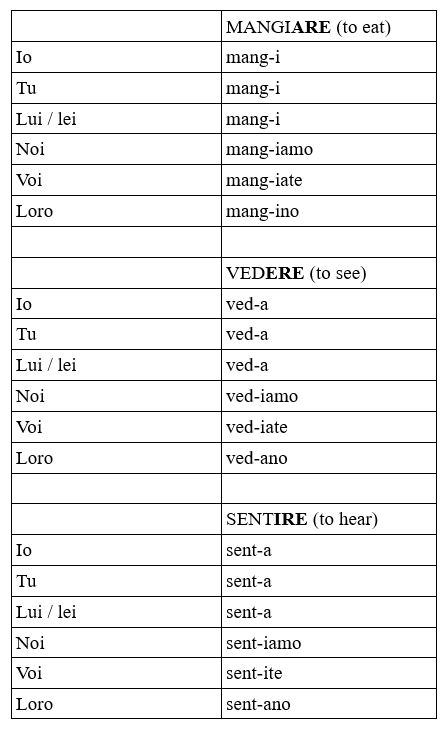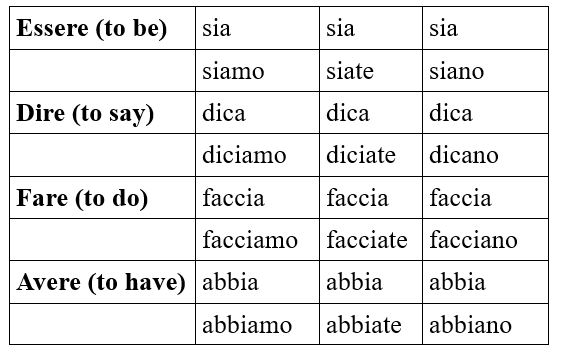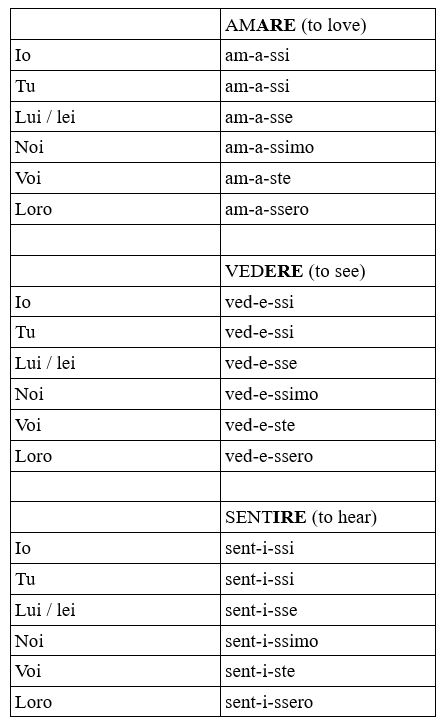What is the subjunctive?
The subjunctive tense (congiuntivo) is a tense that doesn’t have an equivalent in English, therefore it can be a tricky one to learn. On the other hand, if you start using the Italian subjunctive, you will immediately sound more advanced and accurate. So let’s take a look at this important tense of the Italian grammar, what it’s used for and how to conjugate it!
If the indicative (presente, futuro, passato prossimo, imperfetto etc.) is used to talk about events that have happened, are happening or will happen, the Italian subjunctive is what you would use to talk about a doubt, a thought, a wish or anything uncertain.
The subjunctive is used in subordinated sentences (dependent clauses), almost always introduced by the word che.
Let’s clarify this with some practical examples:

The subjunctive in Italian is used with verbs like credere (to believe), pensare (to think), volere (to want), sperare (to hope) and so on, to express wishes, thoughts and beliefs.
- Vogliamo che veniate con noi. We want you to come with us.
- Desideri che ti aiuti? Would you like me to help you?
- Spero che tutto vada bene. I hope that everything goes well.
How to form the present subjunctive
As you can see, the conjugation of the present subjunctive is slightly different from the simple present. To form it, you just have to drop the -are (1st conjugation), -ere (2nd conjugation) and -ire (3rd conjugation) of the infinitive, and add the following endings:

NOTE: the subjunctive is also used in the imperative when using the formal speech. For example:
- Entri, Signora! Come in Madam!
- Sia buono, la prego! Be kind, please!
Present subjunctive of irregular verbs
The chart above shows the conjugations for the Italian regular verbs, whereas some irregular verbs follow a slightly different pattern, for example:

Infinitive or subjunctive?
Sometimes there is an option to avoid using the subjunctive. This happens with verbs following the preposition di (pensare di, credere di etc.). Only if the subjects in both sentences (main sentence and subordinated sentence) are the same. In other words, when the subject is thinking / hoping / feeling something about themselves. In this case you can use the infinitive instead:
- Penso di poter arrivare in tempo. I think I can arrive on time.
- Penso che tu possa arrivare in tempo. I think you can arrive on time.
- Voglio essere ricco. I want to be rich.
- Voglio che tu sia ricca. I want you to be rich.
Imperfect subjunctive (congiuntivo imperfetto)
When the verb in the dependent clause is in the past tense and the action is happening at the same time as the one in the main clause, you need to use the imperfect subjunctive. Here’s how to form it:

Past subjunctive (congiuntivo passato)
We are using the past subjunctive to talk about something which happens before the event expressed in the main clause. Using the tense in the main clause is in the present tense. It’s the equivalent of passato prossimo, but referring to thoughts, wishes, beliefs etc.
Present subjunctive of the auxiliary (essere or avere) + the past participle of the verb.
- Penso che Paolo sia arrivato tardo. I think that Paolo arrived late.
- Non sappiamo se Maria abbia prenotato la camera. We don’t know if Maria has booked the room.
Past perfect subjunctive (congiuntivo trapassato)
We are using the past perfect of the subjunctive to talk about something which happens before the event expressed in the main clause. The tense we are using in the main clause is the past tense. It’s the equivalent of trapassato prossimo, but referring to thoughts, wishes, beliefs etc. Forming the imperfect subjunctive of the auxiliary (essere or avere) + the past participle of the verb.
- Pensavo che Paolo fosse andato al supermercato. I thought that Paolo had gone to the supermarket.
- Non sapevo che tu fossi stata tre volte a Parigi. I didn’t know you had been to Paris three times.
“One of the most important areas we can develop as professionals is competence in accessing and sharing knowledge”









